Australia on Tuesday said it is yet to firm up its position on the Indo-US civil nuclear deal at the Nuclear Suppliers Group (NSG).
NEW DELHI: Australia on Tuesday said it is yet to firm up its position on the Indo-US civil nuclear deal at the Nuclear Suppliers Group (NSG) though the ruling Labour party's policy did not allow supply of uranium to a non-NPT country which could 'change' later.
Australian High Commissioner John McCarthy admitted that the sale of uranium to India was a "problem" but suggested it should not come in the way of bilateral ties as Canberra attached a "huge amount of significance" to its relationship with New Delhi.
On uranium supply, "the policy is no" and the position on Nuclear Suppliers Group (NSG) is "under review," McCarthy said outlining his country's stance on the two key issues at a lecture here.
"The government is just going to consider its position on the NSG. Some countries are in favour, some are opposed. Our position is still be to considered by the Ministers," he said.
His comments came a week after the Australian government conveyed to India's special envoy on nuclear issue Shyam Saran that it could not supply uranium because of its policy.
McCarthy said Labour party's long-held position was that uranium would not be supplied to non-NPT countries like India. He, however, noted that the former John Howard government had shifted the country's policy on uranium supply.
He was quick to add that he cannot say whether this policy of the Labour government can be changed in the future.
"Whether it will change, I don't know. I mean, never say never in politics. The political dynamics can change. It depends on a lot of things," he said, delivering the lecture at the Observer Research Foundation.
The High Commissioner was of the view that the refusal of Australia to sell uranium to India should not affect bilateral ties although he admitted that uranium trade would a 'plus' in economic and political relationship between the two countries.
"This government has a clear policy on sale of uranium... But that does not mean to say we like India any less or the relationship is less important. India is enormously important and we attach a huge significance to the relationship," he said.
Elaborating on this, he said the dynamics between India and Australia is changing and there is 'serious engagement' at the political level while there was an upswing in security cooperation and economic relationship is developing.
He favoured membership for India in the Asia Pacific Economic Cooperation and reiterated Australia's support to New Delhi's bid for a permanent seat in the UN Security Council.
Asked about Australia's views on India's demand for restructuring the NPT regime, McCarthy said Canberra "will be very active in any discussion of non proliferation. But I see nothing to suggest that it will seek to do away with the NPT."
Noting that Australia attaches major importance to the NPT, he said "I think If there is any multilateral international discussion on NPT, including its shape or form, Australia will be very interested in having its say."
He also spoke about the ups and downs in India-Australia ties, mentioning about the Mohammad Haneef and Sydney cricket test episodes, but noted Canberra was seeking increasingly to engage India is different areas.
Talking about New Delhi's energy needs, McCarthy said the bedrock of Australia's relationship with India is going to be resources and identified gas as one of the "elements of future relationship" between the two countries
On Australia's ties with Asia, he said Canberra wants to see a multi-polar Asia where there is a strong India, China, Japan, Indonesia and ASEAN.
![submenu-img]() Viral video: Ghana man smashes world record by hugging over 1,100 trees in just one hour
Viral video: Ghana man smashes world record by hugging over 1,100 trees in just one hour![submenu-img]() This actress, who gave blockbusters, starved to look good, fainted at many events; later was found dead at...
This actress, who gave blockbusters, starved to look good, fainted at many events; later was found dead at...![submenu-img]() Taarak Mehta actor Gurucharan Singh operated more than 10 bank accounts: Report
Taarak Mehta actor Gurucharan Singh operated more than 10 bank accounts: Report![submenu-img]() Ambani, Adani, Tata will move to Dubai if…: Economist shares insights on inheritance tax
Ambani, Adani, Tata will move to Dubai if…: Economist shares insights on inheritance tax![submenu-img]() Cargo plane lands without front wheels in terrifying viral video, watch
Cargo plane lands without front wheels in terrifying viral video, watch![submenu-img]() DNA Verified: Is CAA an anti-Muslim law? Centre terms news report as 'misleading'
DNA Verified: Is CAA an anti-Muslim law? Centre terms news report as 'misleading'![submenu-img]() DNA Verified: Lok Sabha Elections 2024 to be held on April 19? Know truth behind viral message
DNA Verified: Lok Sabha Elections 2024 to be held on April 19? Know truth behind viral message![submenu-img]() DNA Verified: Modi govt giving students free laptops under 'One Student One Laptop' scheme? Know truth here
DNA Verified: Modi govt giving students free laptops under 'One Student One Laptop' scheme? Know truth here![submenu-img]() DNA Verified: Shah Rukh Khan denies reports of his role in release of India's naval officers from Qatar
DNA Verified: Shah Rukh Khan denies reports of his role in release of India's naval officers from Qatar![submenu-img]() DNA Verified: Is govt providing Rs 1.6 lakh benefit to girls under PM Ladli Laxmi Yojana? Know truth
DNA Verified: Is govt providing Rs 1.6 lakh benefit to girls under PM Ladli Laxmi Yojana? Know truth![submenu-img]() Alia Bhatt wears elegant saree made by 163 people over 1965 hours to Met Gala 2024, fans call her ‘princess Jasmine’
Alia Bhatt wears elegant saree made by 163 people over 1965 hours to Met Gala 2024, fans call her ‘princess Jasmine’![submenu-img]() Jr NTR-Lakshmi Pranathi's 13th wedding anniversary: Here's how strangers became soulmates
Jr NTR-Lakshmi Pranathi's 13th wedding anniversary: Here's how strangers became soulmates![submenu-img]() Streaming This Week: Heeramandi, Shaitaan, Manjummel Boys, latest OTT releases to binge-watch
Streaming This Week: Heeramandi, Shaitaan, Manjummel Boys, latest OTT releases to binge-watch![submenu-img]() Remember Ayesha Kapur? Michelle from Black, here's how actress, nutrition coach, entrepreneur looks after 19 years
Remember Ayesha Kapur? Michelle from Black, here's how actress, nutrition coach, entrepreneur looks after 19 years![submenu-img]() Remember Heyy Babyy's cute 'Angel' Juanna Sanghvi? 20 year-old looks unrecognisable now, fans say 'her comeback will...'
Remember Heyy Babyy's cute 'Angel' Juanna Sanghvi? 20 year-old looks unrecognisable now, fans say 'her comeback will...'![submenu-img]() Haryana Political Crisis: Will 3 independent MLAs support withdrawal impact the present Nayab Saini led-BJP government?
Haryana Political Crisis: Will 3 independent MLAs support withdrawal impact the present Nayab Saini led-BJP government?![submenu-img]() DNA Explainer: Why Harvey Weinstein's rape conviction was overturned, will beleaguered Hollywood mogul get out of jail?
DNA Explainer: Why Harvey Weinstein's rape conviction was overturned, will beleaguered Hollywood mogul get out of jail?![submenu-img]() What is inheritance tax?
What is inheritance tax?![submenu-img]() DNA Explainer: What is cloud seeding which is blamed for wreaking havoc in Dubai?
DNA Explainer: What is cloud seeding which is blamed for wreaking havoc in Dubai?![submenu-img]() DNA Explainer: What is Israel's Arrow-3 defence system used to intercept Iran's missile attack?
DNA Explainer: What is Israel's Arrow-3 defence system used to intercept Iran's missile attack?![submenu-img]() This actress, who gave blockbusters, starved to look good, fainted at many events; later was found dead at...
This actress, who gave blockbusters, starved to look good, fainted at many events; later was found dead at...![submenu-img]() Taarak Mehta actor Gurucharan Singh operated more than 10 bank accounts: Report
Taarak Mehta actor Gurucharan Singh operated more than 10 bank accounts: Report![submenu-img]() Aavesham OTT release: When, where to watch Fahadh Faasil's blockbuster action comedy
Aavesham OTT release: When, where to watch Fahadh Faasil's blockbuster action comedy![submenu-img]() Sonakshi Sinha slams trolls for crticising Heeramandi while praising Bridgerton: ‘Bhansali is selling you a…’
Sonakshi Sinha slams trolls for crticising Heeramandi while praising Bridgerton: ‘Bhansali is selling you a…’![submenu-img]() Sanjeev Jha reveals why he cast Chandan Roy in his upcoming film Tirichh: 'He is just like a rubber' | Exclusive
Sanjeev Jha reveals why he cast Chandan Roy in his upcoming film Tirichh: 'He is just like a rubber' | Exclusive![submenu-img]() IPL 2024: Mumbai Indians knocked out after Sunrisers Hyderabad beat Lucknow Super Giants by 10 wickets
IPL 2024: Mumbai Indians knocked out after Sunrisers Hyderabad beat Lucknow Super Giants by 10 wickets![submenu-img]() PBKS vs RCB IPL 2024: Predicted playing XI, live streaming details, weather and pitch report
PBKS vs RCB IPL 2024: Predicted playing XI, live streaming details, weather and pitch report![submenu-img]() PBKS vs RCB IPL 2024 Dream11 prediction: Fantasy cricket tips for Punjab Kings vs Royal Challengers Bengaluru
PBKS vs RCB IPL 2024 Dream11 prediction: Fantasy cricket tips for Punjab Kings vs Royal Challengers Bengaluru![submenu-img]() Watch: Bangladesh cricketer Shakib Al Hassan grabs fan requesting selfie by his neck, video goes viral
Watch: Bangladesh cricketer Shakib Al Hassan grabs fan requesting selfie by his neck, video goes viral![submenu-img]() IPL 2024 Points table, Orange and Purple Cap list after Delhi Capitals beat Rajasthan Royals by 20 runs
IPL 2024 Points table, Orange and Purple Cap list after Delhi Capitals beat Rajasthan Royals by 20 runs![submenu-img]() Viral video: Ghana man smashes world record by hugging over 1,100 trees in just one hour
Viral video: Ghana man smashes world record by hugging over 1,100 trees in just one hour![submenu-img]() Cargo plane lands without front wheels in terrifying viral video, watch
Cargo plane lands without front wheels in terrifying viral video, watch![submenu-img]() Tiger cub mimics its mother in viral video, internet can't help but go aww
Tiger cub mimics its mother in viral video, internet can't help but go aww![submenu-img]() Octopus crawls across dining table in viral video, internet is shocked
Octopus crawls across dining table in viral video, internet is shocked![submenu-img]() This Rs 917 crore high-speed rail bridge took 9 years to build, but it leads nowhere, know why
This Rs 917 crore high-speed rail bridge took 9 years to build, but it leads nowhere, know why 


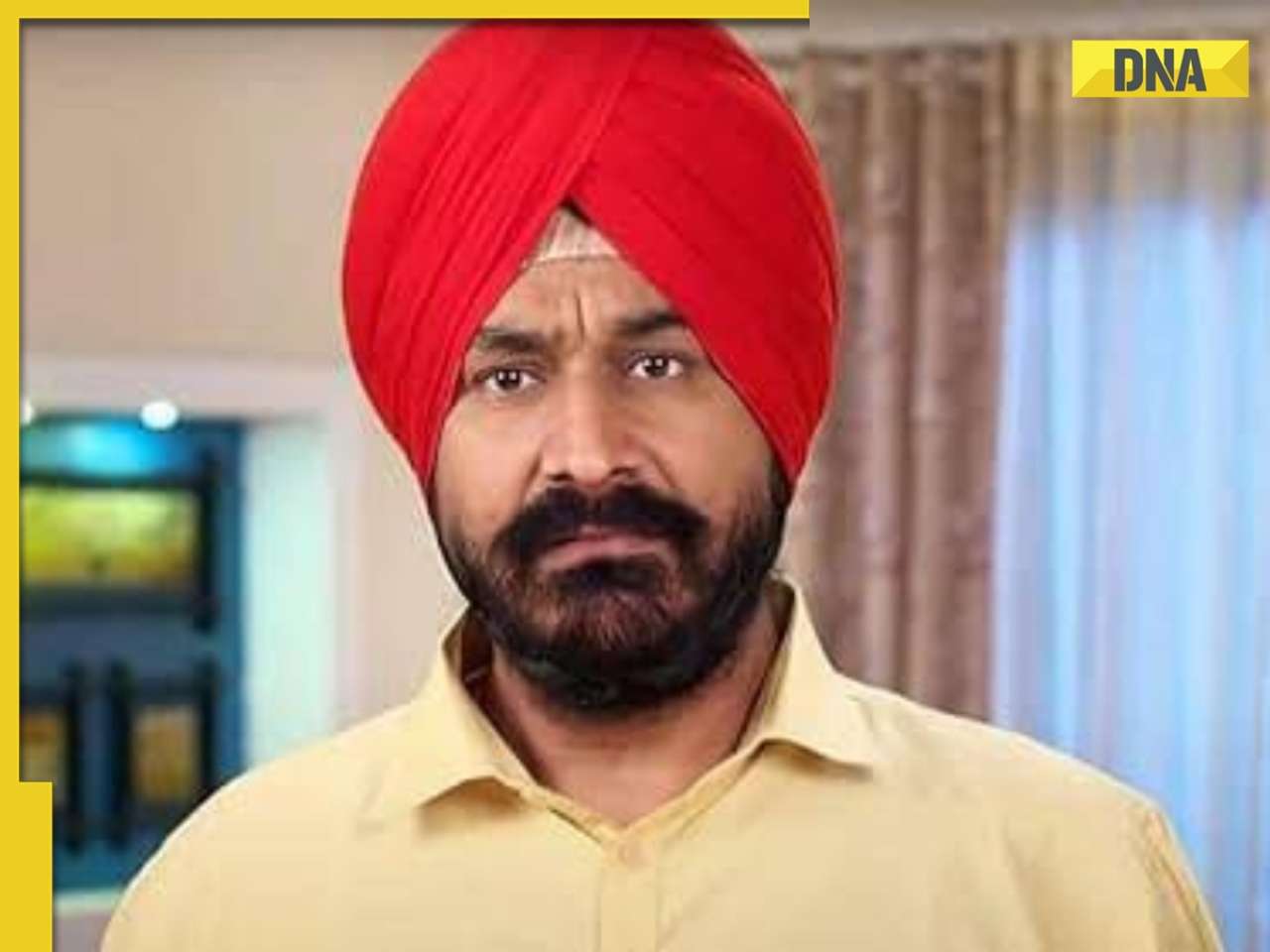
























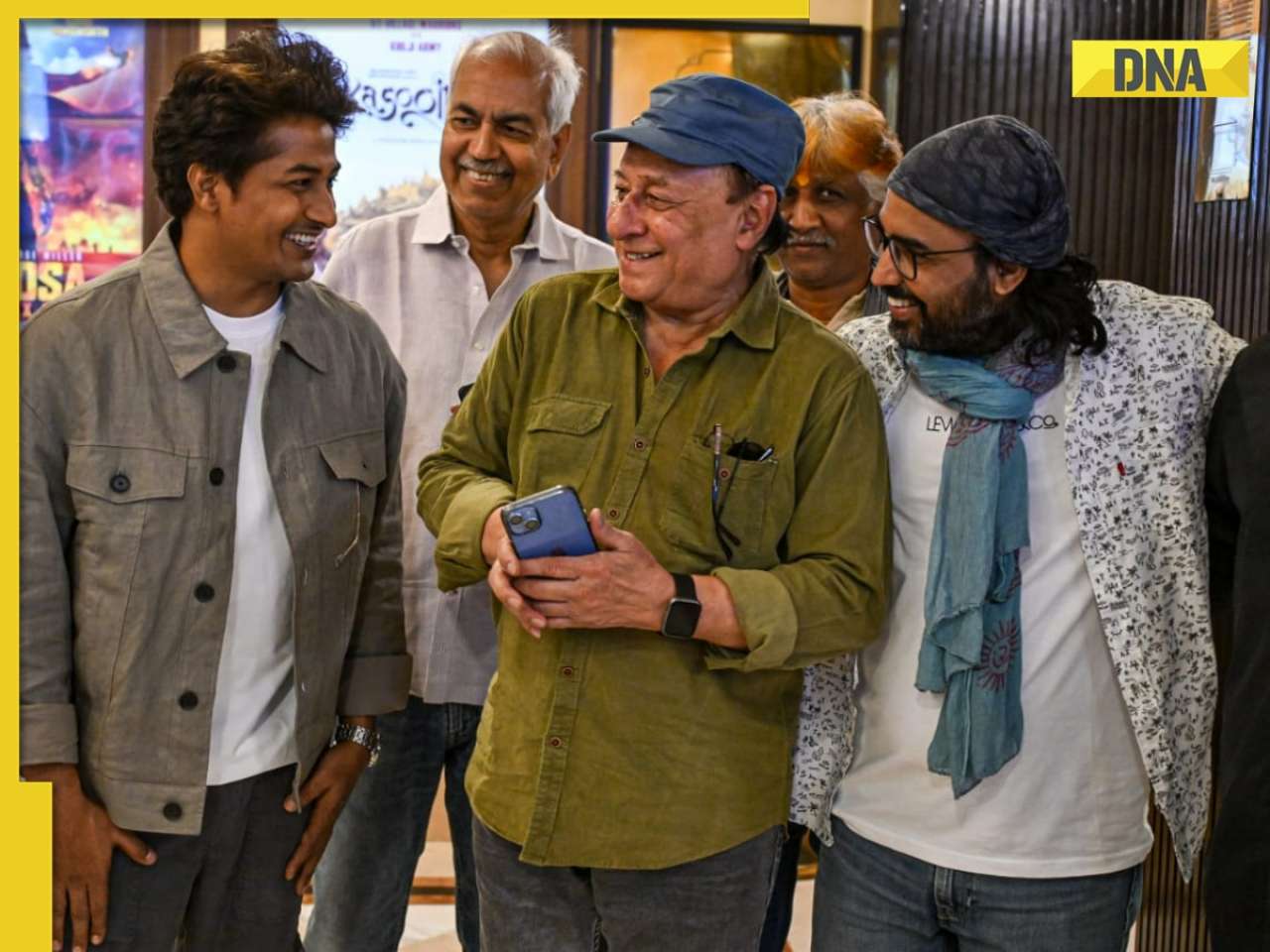

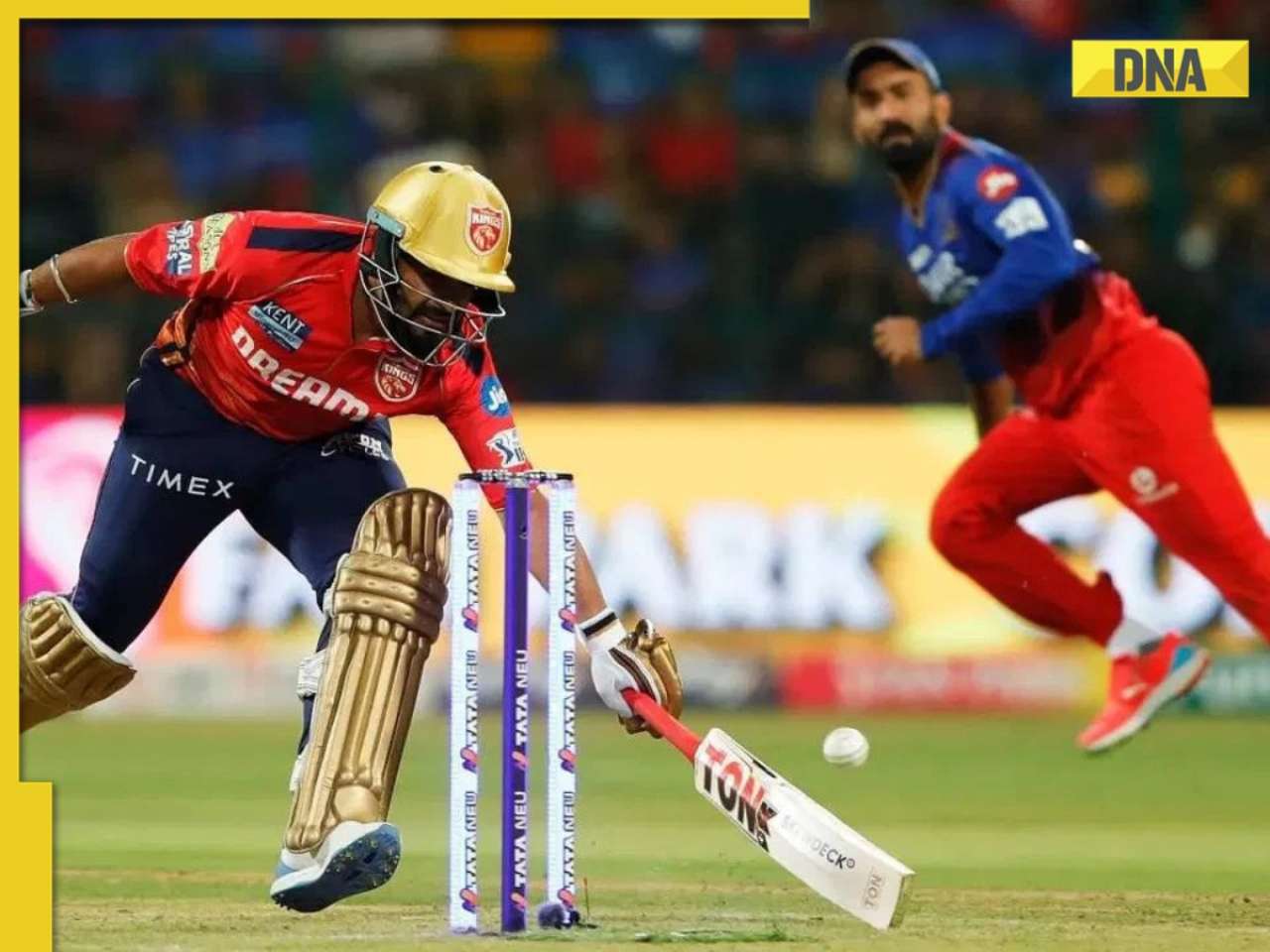
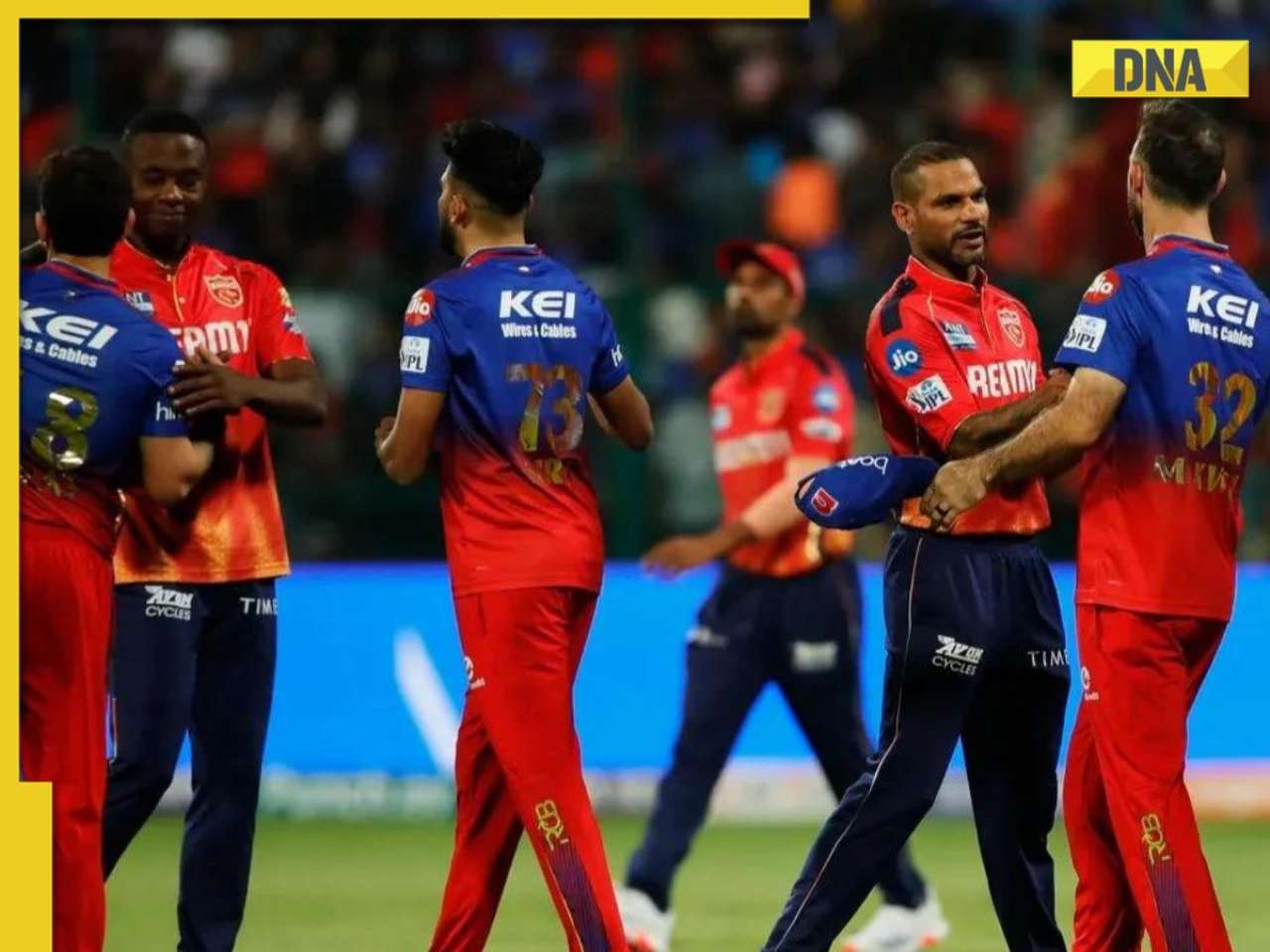


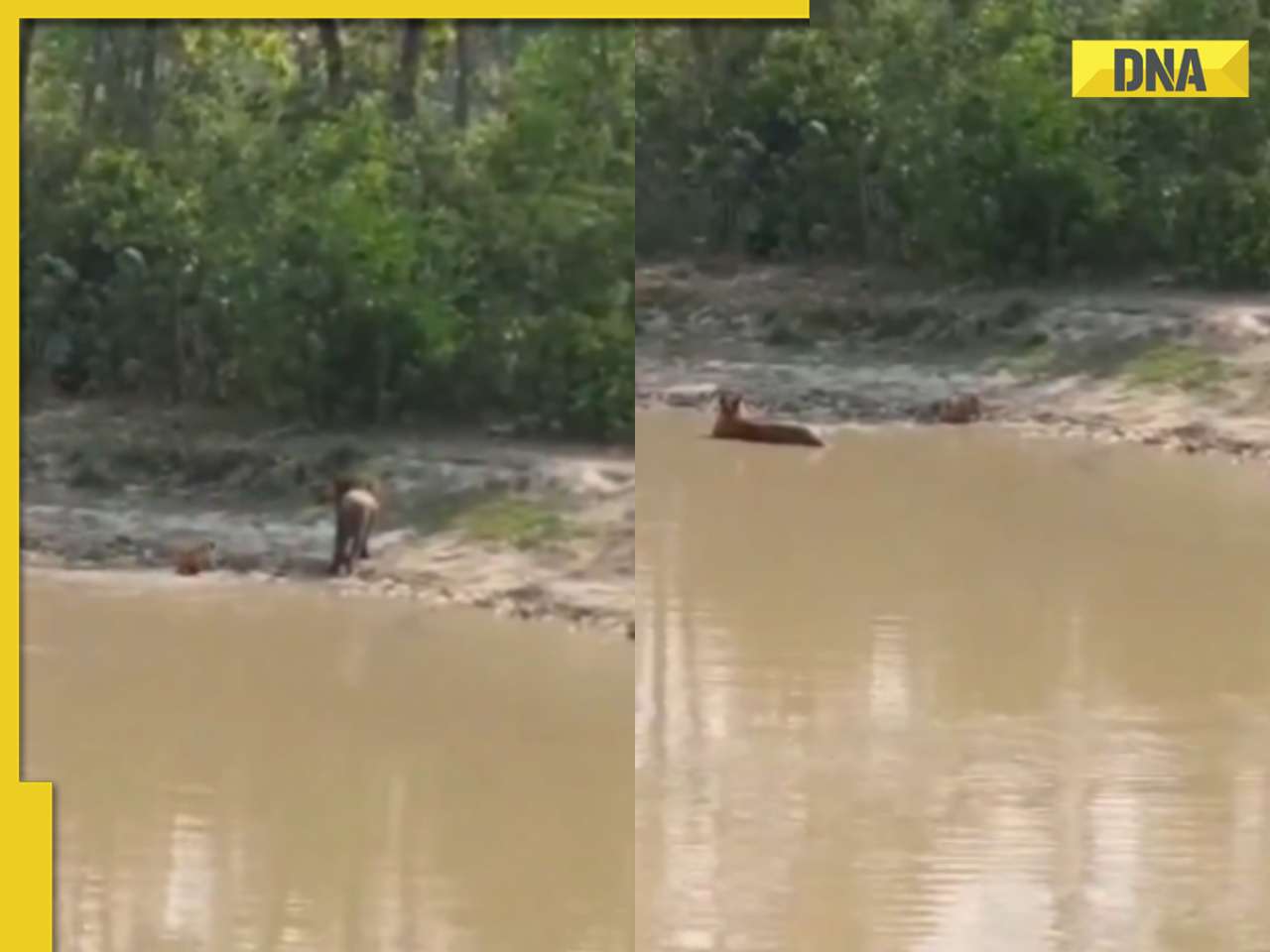
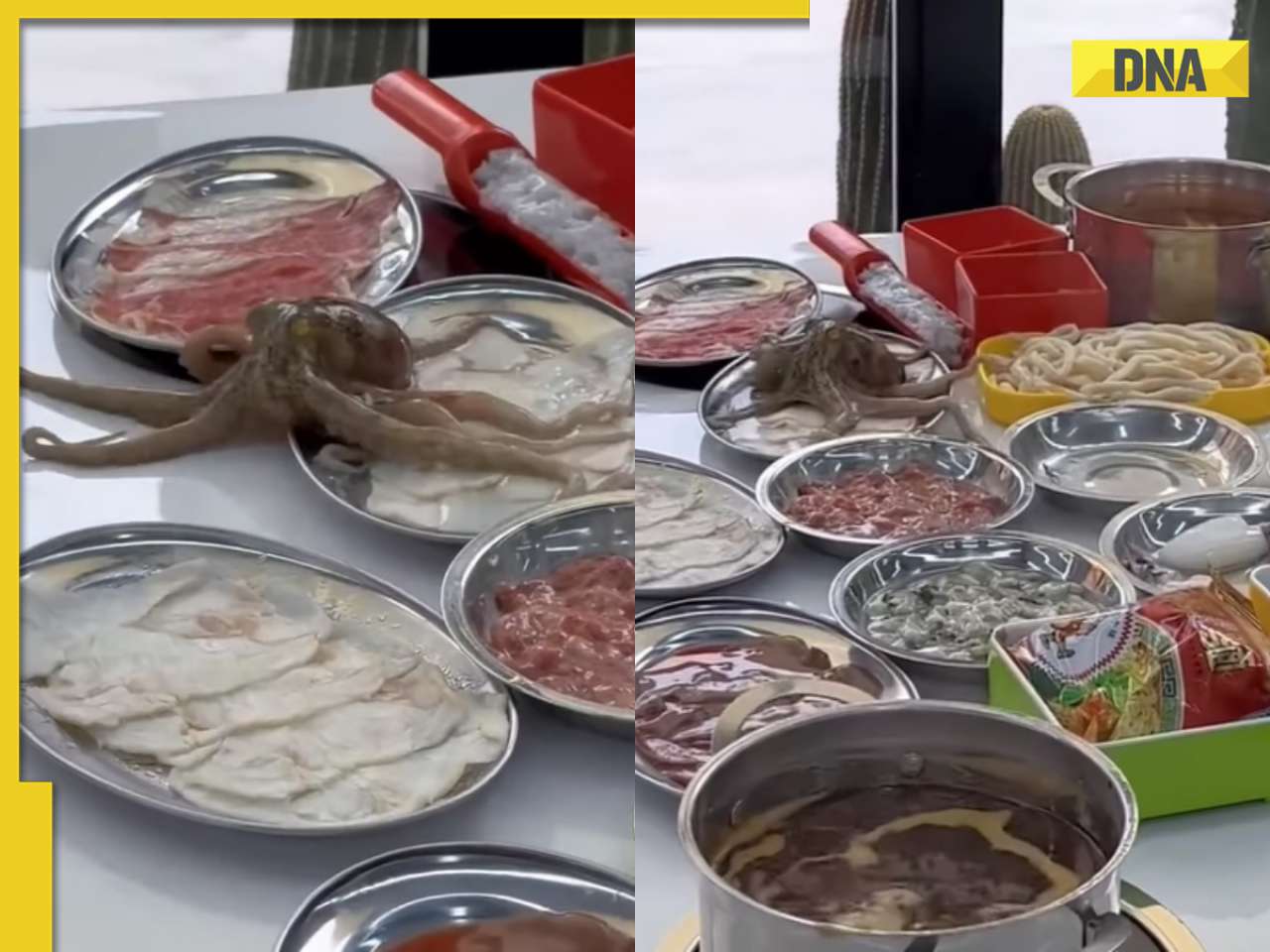
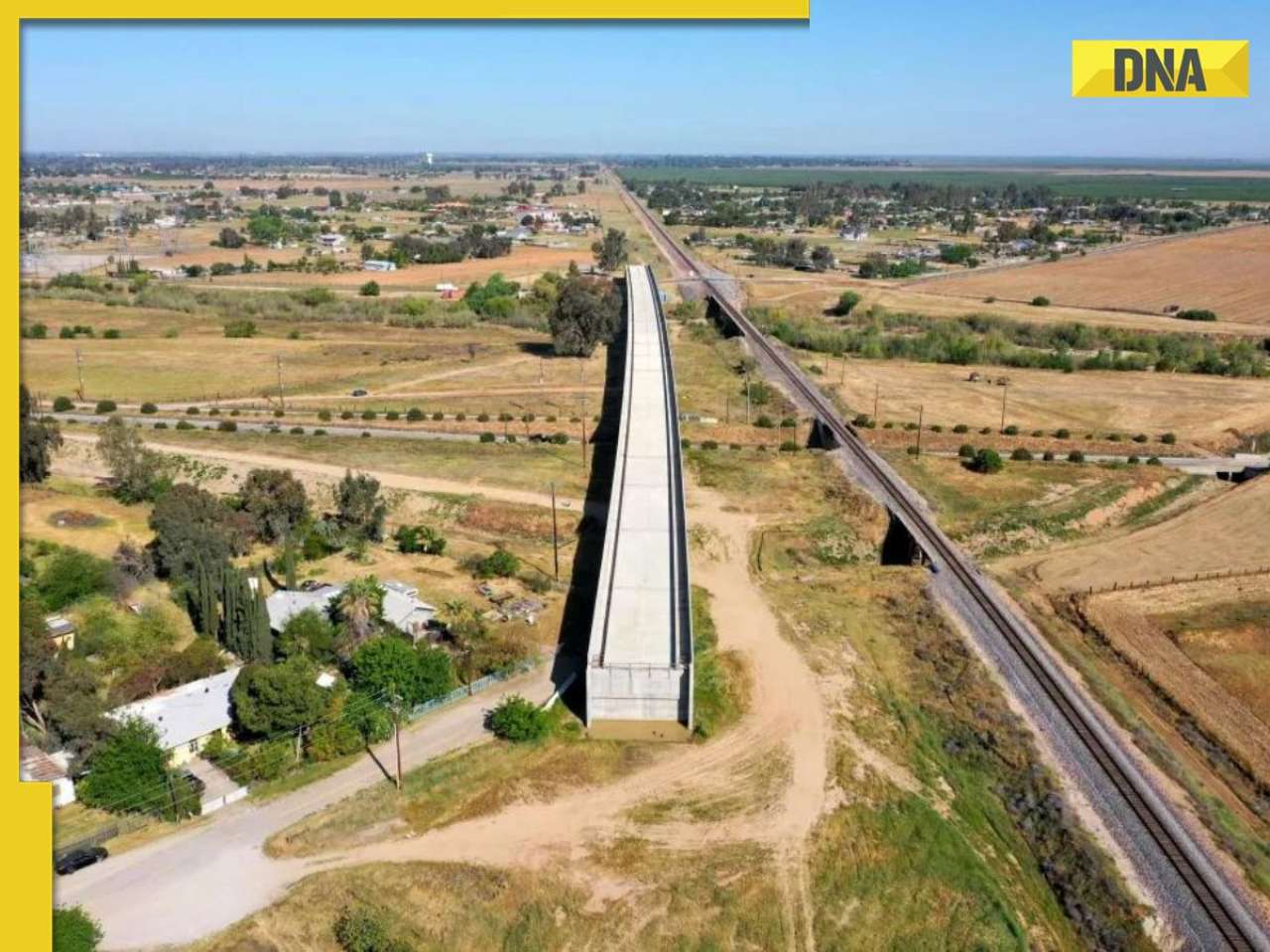


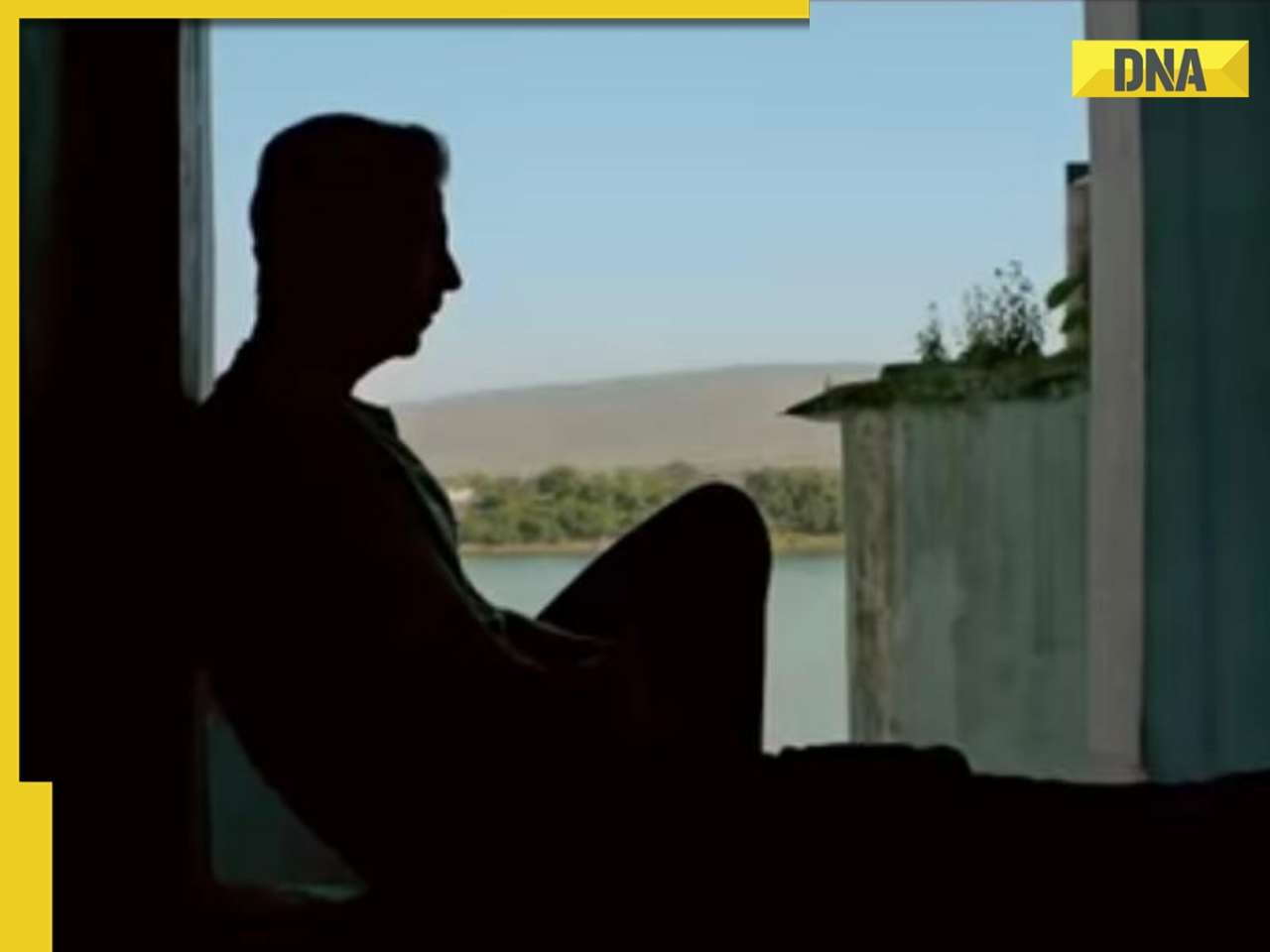













)
)
)
)
)
)